Life
Sign up for our newsletter
We summarize the week's scientific breakthroughs every Thursday.
-
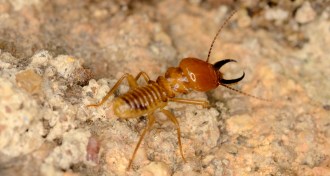 Animals
AnimalsTermite soldiers locate battles with vibrational clues
To locate invasions, termite soldiers listen for millisecond-long delays in vibrational distress signals sent out by other soldiers.
By Susan Milius -
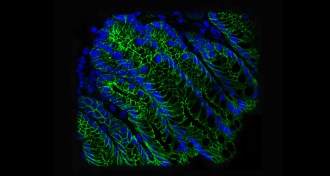 Health & Medicine
Health & MedicineCarbs and gut microbes fuel colon cancer
Western nations experience high levels of colon cancer, and carbo-loading gut microbes might explain why, says a new study in mice.
By Nsikan Akpan -
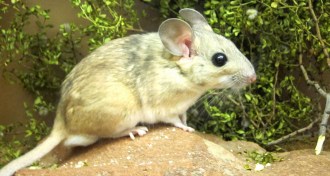 Microbes
MicrobesGut microbes help packrats eat poison
Antiobiotics and fecal transplants in desert woodrats shown that gut microbes can help plant-eaters metabolize toxins.
-
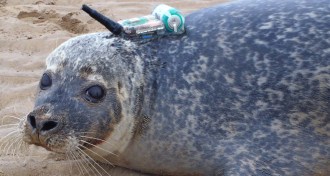 Ecosystems
EcosystemsOffshore wind farms may be seal feeding grounds
Harbor seals were tracked visiting offshore wind farms, probably to find food, researchers say.
-
 Life
LifePregnancy disorder shares aspects with Alzheimer’s
Misfolded proteins, the hallmark of Alzheimer’s and mad cow diseases, are found in urine of women with preeclampsia.
-
 Neuroscience
NeuroscienceObese women struggle to learn food associations
In a lab experiment, women fail to connect color signal with tasty reward, a deficit that may contribute to obesity.
-
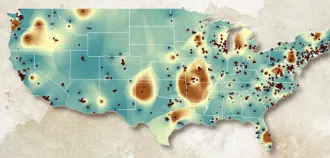 Microbes
MicrobesFront doors carry ‘thin patina’ of poop bacteria
A new map shows that Americans’ front door frames are coated in gut-dwelling microbes.
-
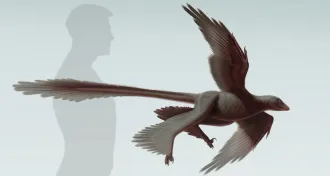 Paleontology
PaleontologyDinos’ long tail feathers may have stopped crash landings
C. yangi's long tail feathers may have helped it control its flight speed as it tried to land.
-
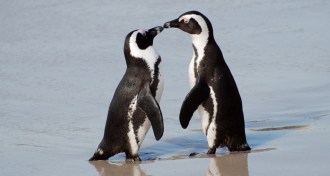 Life
LifeYou don’t have to go to Antarctica to see wild penguins
Tourists can visit many species of wild penguins outside of Antarctica.
-
 Plants
PlantsWine corks may owe quality to gene activity
Discovery of genes that distinguish superior stoppers from inferior ones could help reverse recent global downturn in quality.
By Nsikan Akpan -
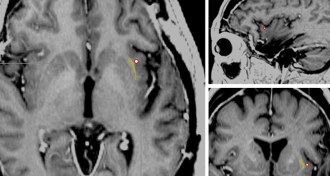 Neuroscience
NeuroscienceElectrode turns consciousness on and off
Woman lost awareness, though appeared awake, when her brain was stimulated near an area called the claustrum.
-
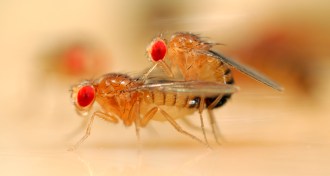 Neuroscience
NeuroscienceIn female flies, sex is more complex than yes or no
A female fruit fly’s role in mating has appeared to be a simple yes or no. But now three new papers show the behavior is far more subtle, and intricate, than first thought.